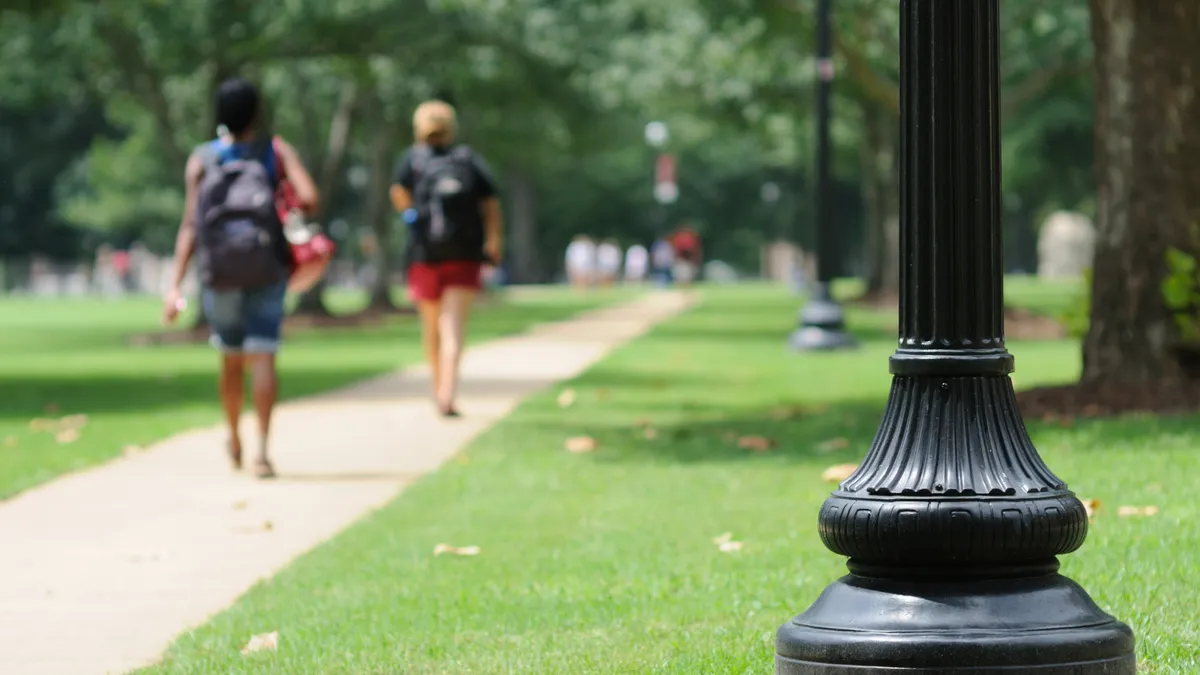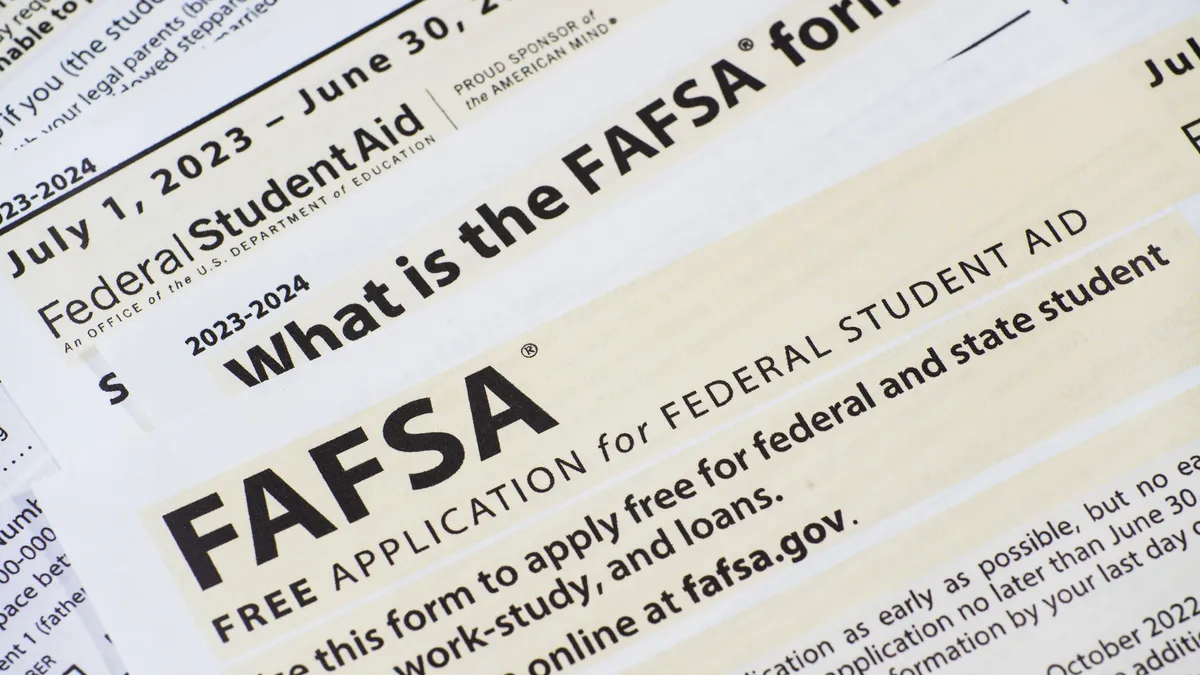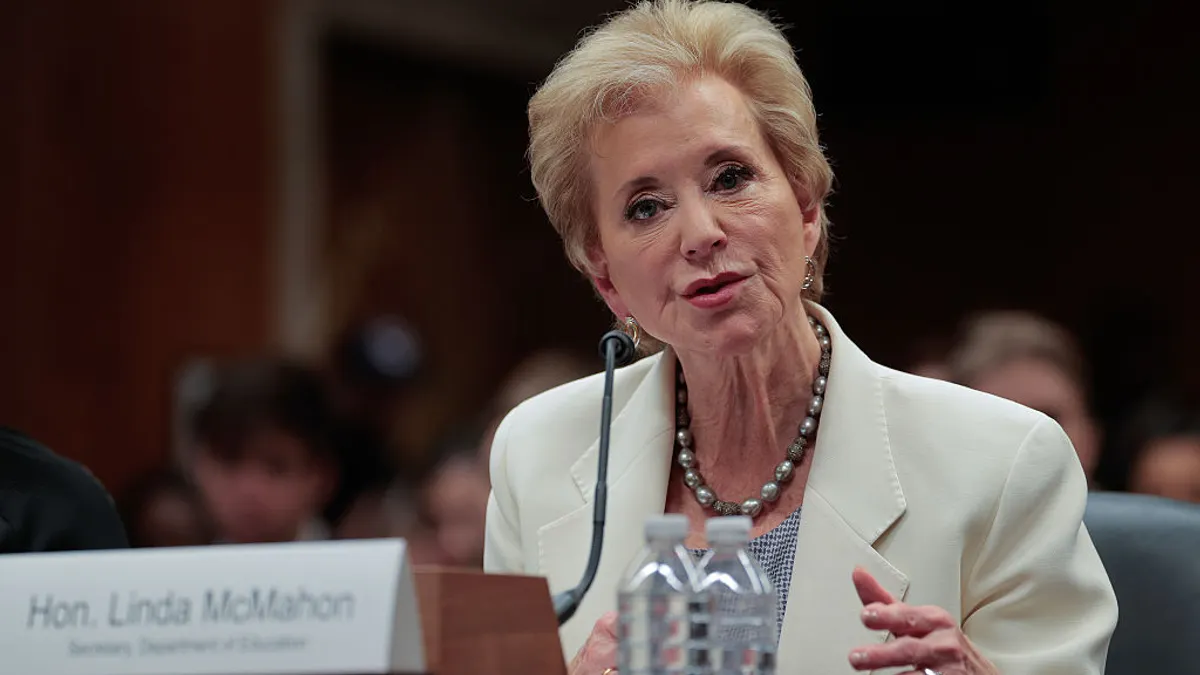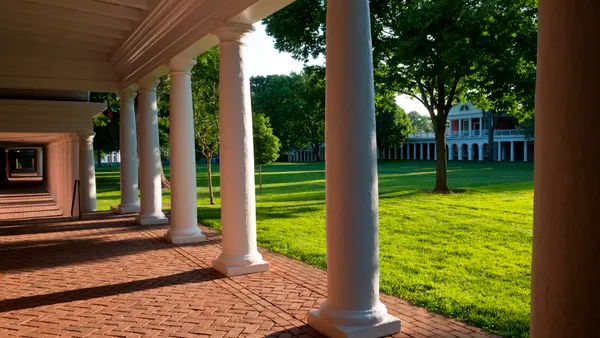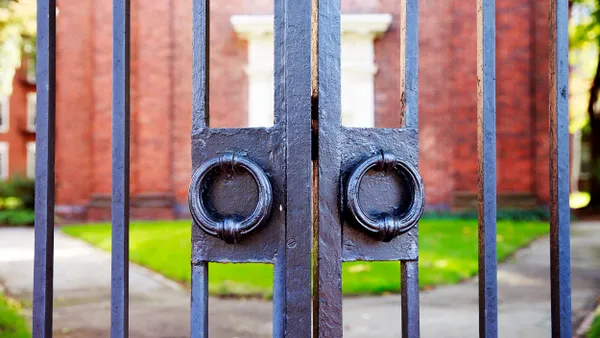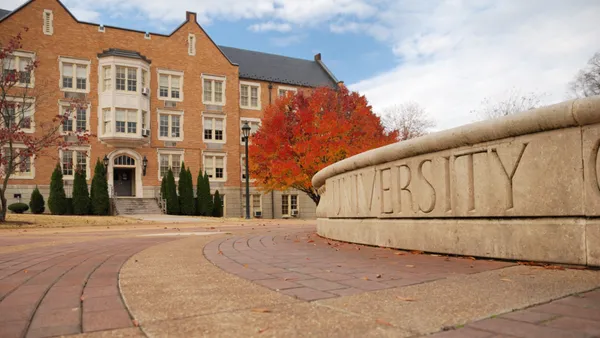Dive Brief:
- A new study suggests that reopening college campuses for in-person instruction may have fueled tens of thousands of additional coronavirus cases in the U.S.
- Researchers from several universities estimated that more than 3,000 new daily cases nationwide, on average, could be linked to colleges offering face-to-face classes, beginning around two weeks after instruction started.
- Campuses nationwide have attempted to bring students back this fall, but outbreaks have forced some to quarantine students or send them home and return to virtual courses.
Dive Insight:
Skepticism abounded as colleges reopened their campuses for the fall term amid a nationwide spike in cases. But since then, several schools have shifted temporarily or even permanently to remote classes as a result of outbreaks on campus.
The new report, which is not peer reviewed, draws on the researchers' analysis of GPS information from cellphones, as well as publicly available health data. It is due to be published on the preprint server medRxiv.
With the cellular data, the researchers were able to track students' arrival on campuses. They monitored the infection rates in all U.S. counties from mid-July to mid-September, which includes the period immediately before and after students returned to campuses.
The average case count related to counties where institutions offered in-person classes was 3,000 per day, or more than 2 cases per 100,000 people.
"No such increase is observed in counties with no colleges, closed colleges or those that opened primarily online," they wrote.
The timing of the spike — just weeks after institutions reopened — suggests the spread occurred on campus, said Anirban Basu, a health economist at the University of Washington and one of the paper's authors. However, he noted, case counts rose in the colleges' counties when students were coming to the campuses from coronavirus hotspots. The study did not identify whether the positive cases were people on campus or those nearby.
Basu said college administrators should not send students home if they see an uptick in campus cases because doing so would spread the virus. He also said the study should cause them to "think carefully" about reopening strategies for the spring.
A spokesperson with the American College Health Association said in a statement that research is important to understanding community spread and informing mitigation strategies.
"As campuses reopen, studies like this one may contribute to a better understanding of this disease," the statement reads, though it didn't comment directly on the study's contents.



